How to avoid greenwashing and embrace green marketing in B2B
By: Sabrina Rodrigues
June 5, 2024 | Reading Time: 9 mins
Our world is in a climate emergency and with every tick of the climate clock, the pressure to take bolder steps to prevent global warming increases. With sustainability concerns being top of mind for many, it’s tempting for businesses to engage in the topic. But there’s a right and wrong way to go about it. If you want to learn how your business can avoid Mother Nature’s glare of disapproval and Greta Thunberg’s side-eye then keep reading. 
What is greenwashing?
Greenwashing is misleading your audience with inflated or false claims about environmental friendliness. Vague language, lying, or making irrelevant claims around sustainability are a few ways you can get called out for greenwashing. While it’s compelling to market your business in a positive light, faking ethical behaviour is not the way to go. 
Learn what NOT to do from brands accused of greenwashing
A recent fashion-specific report found that 60% of sustainability claims by European fashion giants are “unsubstantiated” and “misleading” (Changing Markets Foundation 2021). Most recently, Lululemon faced greenwashing allegations for their Be Planet sustainability campaign in 2020. And the European Union has launched a lawsuit against 20 airlines for false claims of CO2 emissions. Volkswagen promoted its diesel vehicles as eco-friendly. It was later discovered that the emissions tests were manipulated to appear greener than reality with the situation being dubbed Dieselgate. When the truth came to light, Volkswagen faced severe repercussions, including a significant drop in market value, hefty fines, and a damaged reputation. Lesson here? Don’t tamper with the truth.
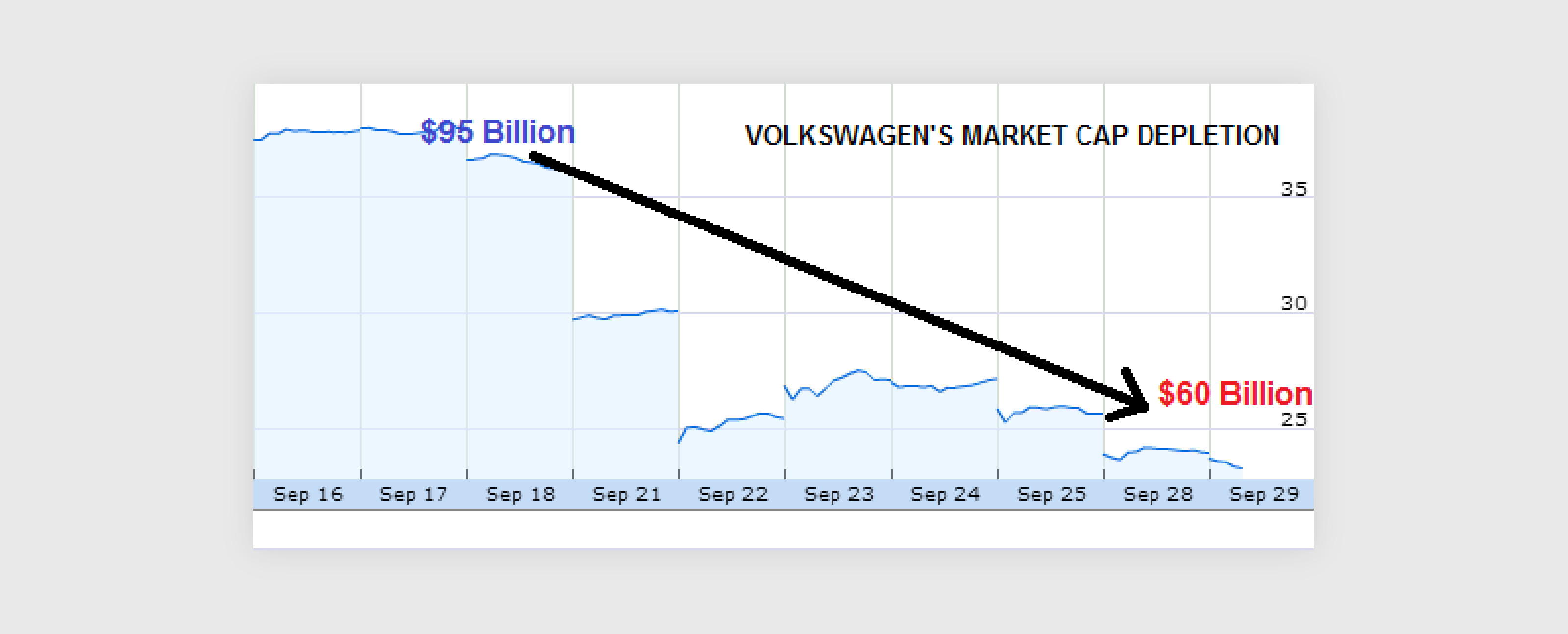 Even companies with the best green intentions can get tangled up in greenwashing if they’re not intentional with their business operations. Google, the tech giant with an impressive sustainability plan and a commitment to going green, found itself in hot water—not because of their own practices, but because they were cashing in on ad revenue from fossil fuel companies. These ads had many traits of greenwashing. Unfortunately, Google became an accessory in this scandal. It’s a classic case of “practice what you preach, not just what you profit from.” Just like rainbow washing, it’s not enough to “say” you are doing something. You need to walk the walk, too.
Even companies with the best green intentions can get tangled up in greenwashing if they’re not intentional with their business operations. Google, the tech giant with an impressive sustainability plan and a commitment to going green, found itself in hot water—not because of their own practices, but because they were cashing in on ad revenue from fossil fuel companies. These ads had many traits of greenwashing. Unfortunately, Google became an accessory in this scandal. It’s a classic case of “practice what you preach, not just what you profit from.” Just like rainbow washing, it’s not enough to “say” you are doing something. You need to walk the walk, too.
Is green marketing important for B2B businesses?
The LOHAS market (Lifestyle of Health and Sustainability) is growing at an estimated rate of 10% each year. With many B2B businesses caring about ESG (environmental, social and governance) initiatives or wanting to attract ESG investors, it’s important to demonstrate sustainable and responsible business practices. Whether you are an architectural engineering firm, transportation company or a manufacturer—it matters. Even your B2B website plays a role in sustainability with communications technology estimated to be responsible for over 20% of total energy consumption and could emit up to 5.5% of the world’s carbon emissions by 2025.
On top of that, we’re seeing consumer behaviour shift towards valuing sustainability:
- World Wildlife Fund (WWF) found the number of posts on X (Twitter) related to nature and biodiversity loss has increased by 65% since 2016.
- McKinsey states that companies making ESG claims show more growth than those that don’t.
- Deloitte found that consumers trust brands more that have a transparent, accountable, and environmentally responsible supply chain.
No matter your market, your audience is, well, people, and we’re seeing that overall this is a topic people value making it relevant for B2B businesses.
Business benefits of going green (beyond environmental wins)
For companies operating in emerging markets, engaging in CSR practices can give you a competitive edge. Regardless of your industry, addressing major social concerns like environmental sustainability will establish your corporate citizenship as environmentally friendly and in tune with societal expectations—both of which you want for your business. It’s all about scalability in today’s age. Green marketing practices are becoming more and more impactful for establishing your company as a socially responsible and credible organization.
Build long-term value and trust
Trust is a fundamental aspect of any B2B relationship, and demonstrating a genuine commitment to CSR helps establish a solid foundation for long-term partnerships. It’s like making friends—you wouldn’t want to be associated with people who don’t have a good reputation. Businesses think the same way.
It also proves you to be reliable. Being known as a stable and adoptive company will have companies as excited to work with you as kids in a candy store with a fistful of cash.
Marketing your green initiatives is a subtle tactic to flaunt your positive impact. Be proud of environmental responsibility efforts. It will attract more partnerships, investors, and top talent. How? It’s simple. Environmentally conscious companies are known to be stable, innovative, and credible. Having this reputation will increase loyalty and partnerships for years to come.
Reduce employee turnover
Job seekers are more inclined to apply for roles when they resonate with the mission and values of the company. With the move towards environmental stewardship, job seekers are likely to rank businesses with CSR efforts above those without. As new generations enter the workforce, these considerations are a hot topic (climate change pun intended). Employees are more likely to stay with a company that provides meaningful work and a positive, values-driven culture. What’s important is that you are straying away from greenwashing. A recent study highlighted that, regardless of one’s environmental stance, confidence in the organization and task performance are both hindered when promoting false information.
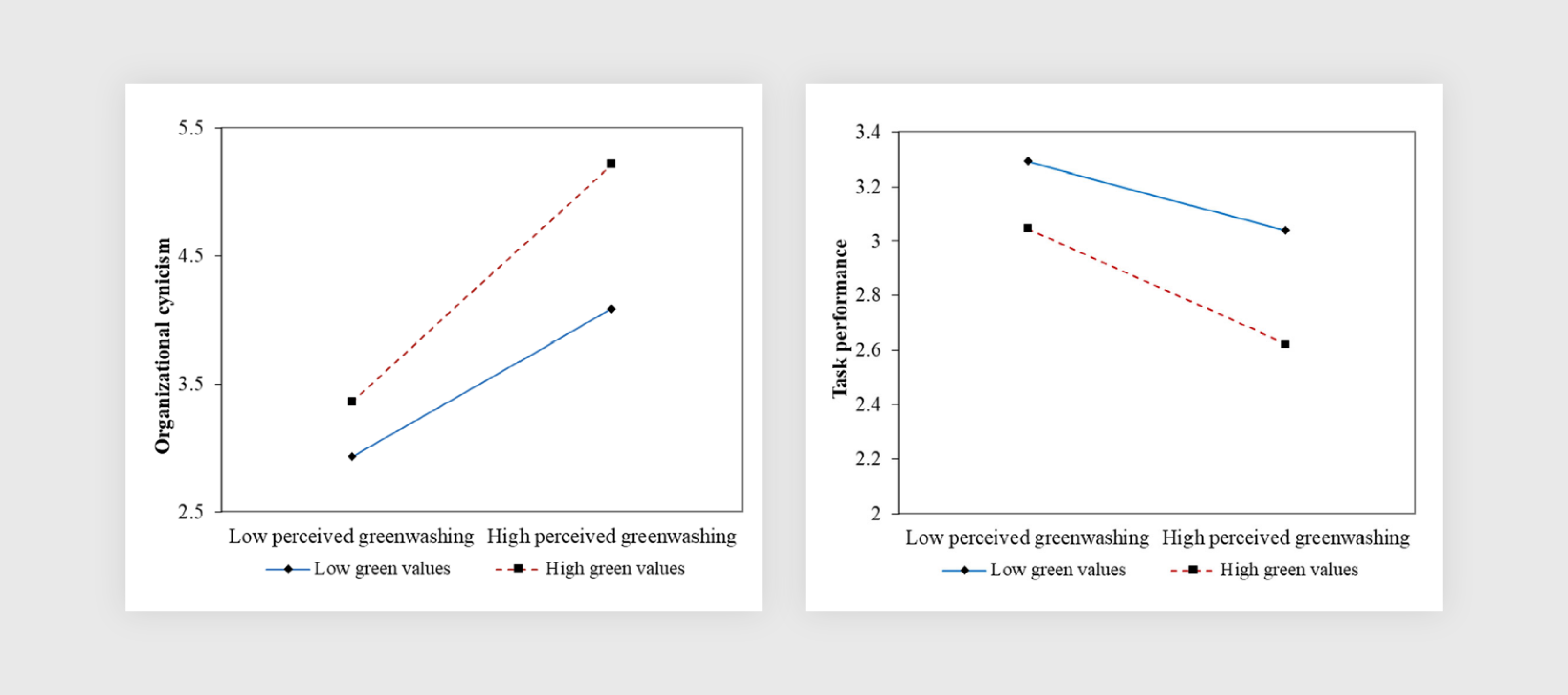
Learn from businesses that are engaging in authentic green marketing
Get inspired by the storytelling and positioning of D2C products
While it feels like we’re in drastically different spaces from our peers in D2C, there’s still a lot we can learn from their green marketing. For example, Patagonia operates with 76% renewable energy globally and ensures its sourcing and supply chain matches this eco-friendly ethos. By sparking conversations around sustainability and conscious consumerism, Patagonia has solidified its reputation as a leader in eco-conscious retail. The key takeaway? Authenticity and transparency are your best friends. Show your audience the real steps you’re taking toward sustainability, and you’ll not only gain their trust but also inspire meaningful change. 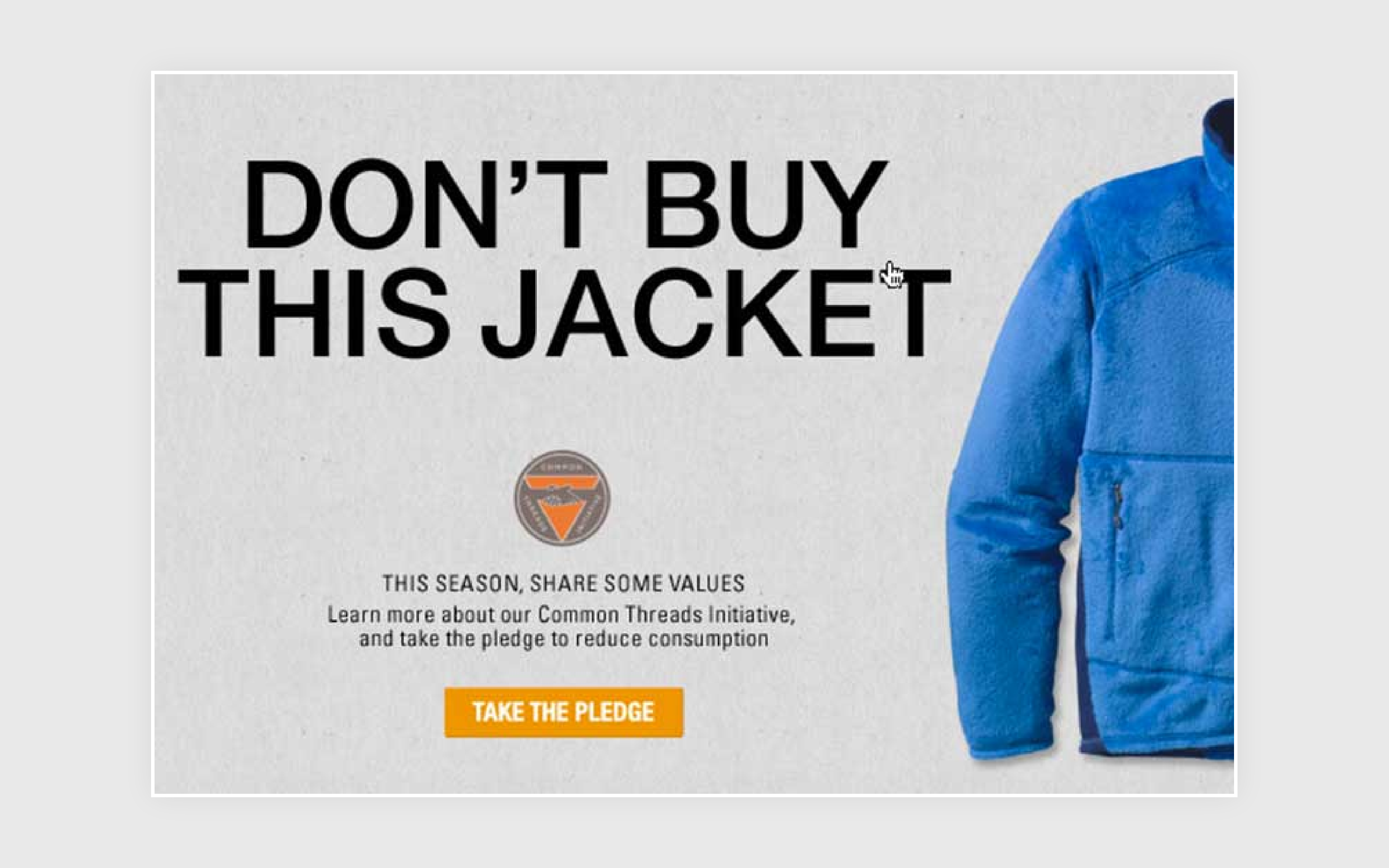 IKEA isn’t just about affordable home decor—they’re also making waves in green marketing. IKEA has committed to using 100% renewable energy across its operations. Their marketing campaigns are a masterclass in promoting sustainability, from showcasing their sustainable product lines to emphasizing their recycling programs and eco-friendly initiatives.
IKEA isn’t just about affordable home decor—they’re also making waves in green marketing. IKEA has committed to using 100% renewable energy across its operations. Their marketing campaigns are a masterclass in promoting sustainability, from showcasing their sustainable product lines to emphasizing their recycling programs and eco-friendly initiatives.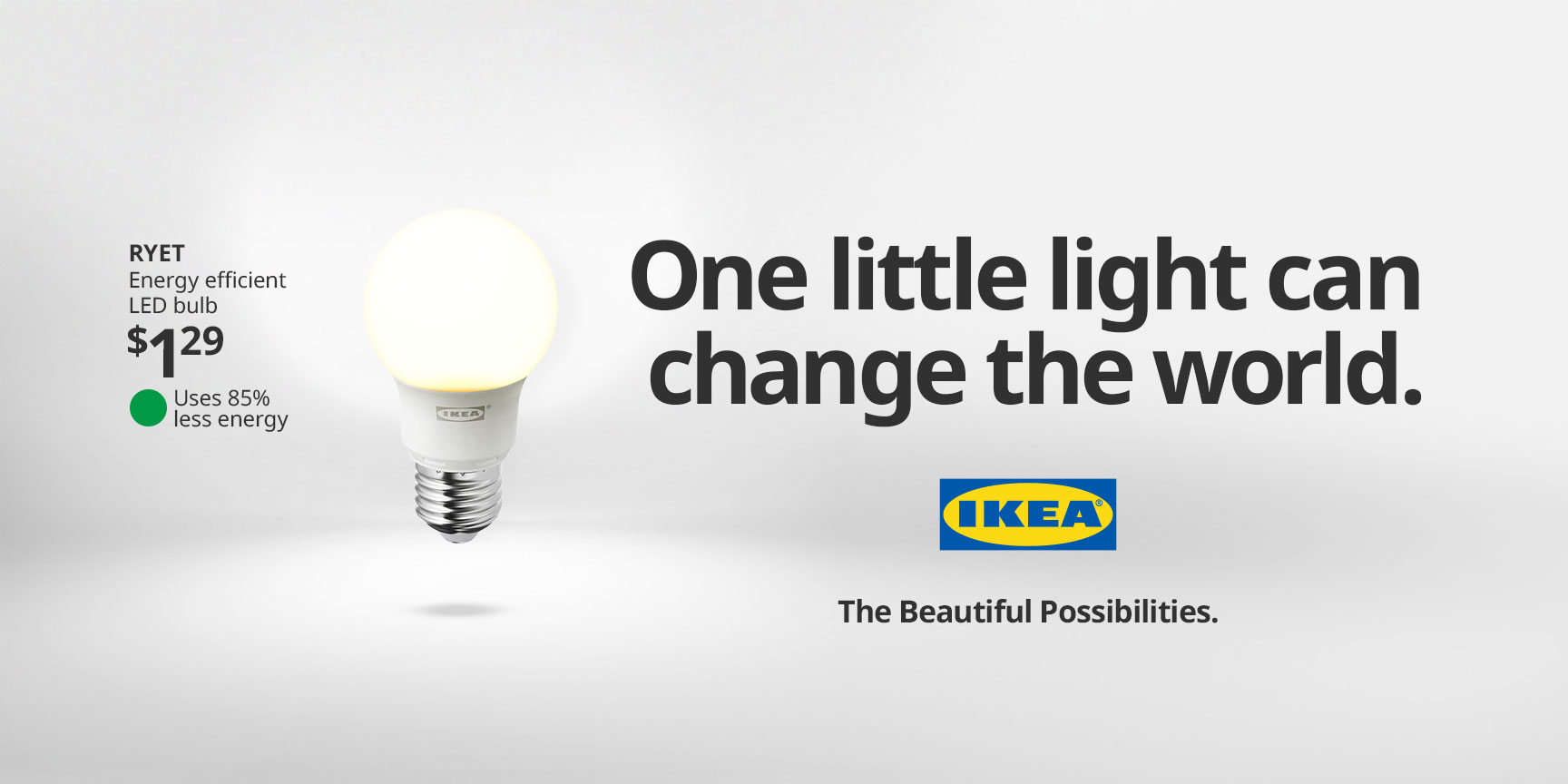
How B2B businesses can engage in authentic green marketing
Here are three very different ways that three very different B2B organizations have approached ESG and green marketing.
Daggerwing Group
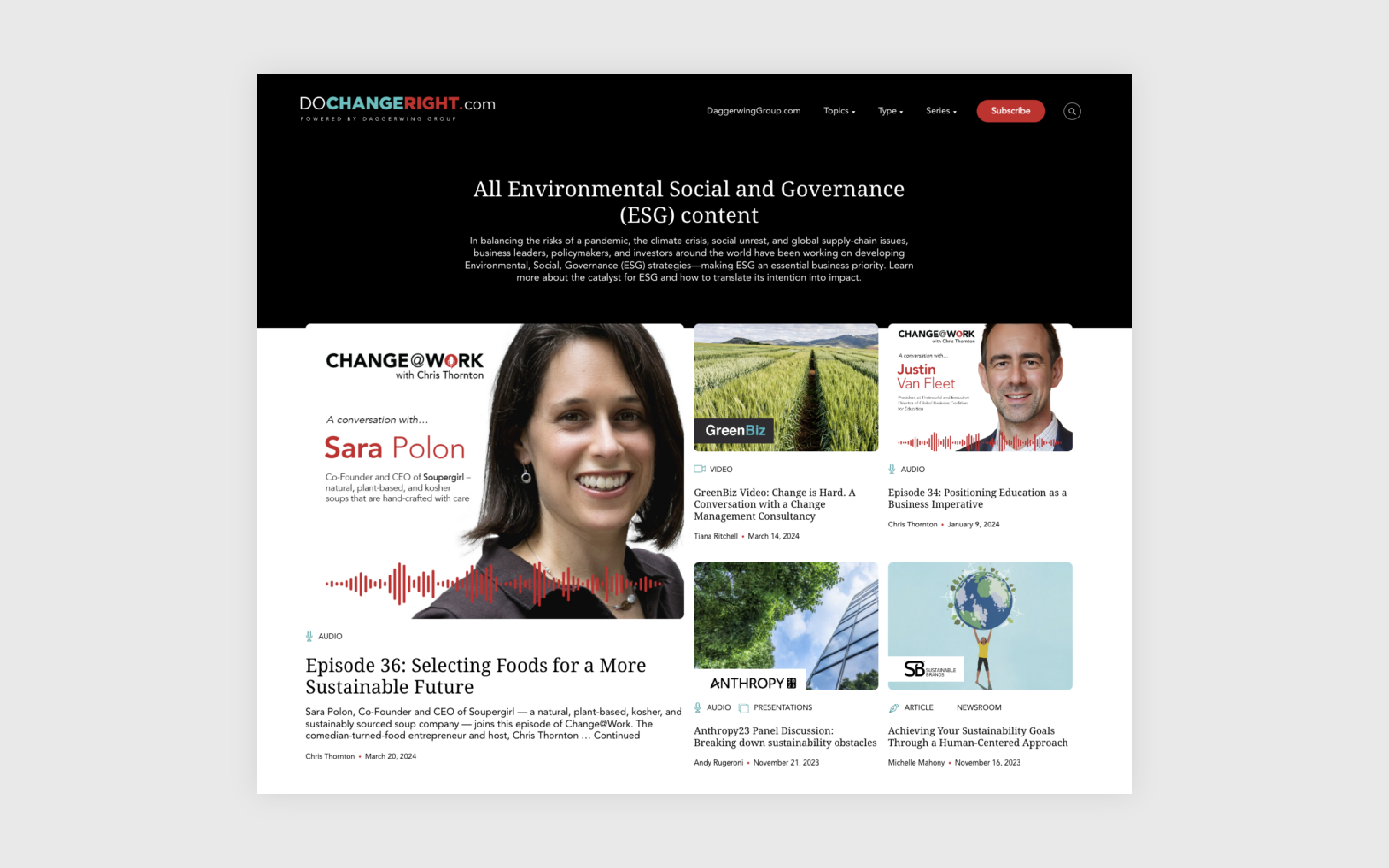
Daggerwing Group is a global change consultancy offering ESG strategy and change management.
Their approach to green marketing is via content and thought leadership. Their blog, DoChangeRight.com has a dedicated series discussing sustainability. This reinforces their credibility while providing education to business leaders regarding ESG. It makes sense for their brand to engage in green marketing in this way because their brand is all about equipping businesses to drive positive organizational change. By partnering with practitioners, partners, influencers, and academics, their dedicated content hub showcases their expertise in ESG which is exactly how their business engages in being green—by supporting businesses in that goal.
RWDI
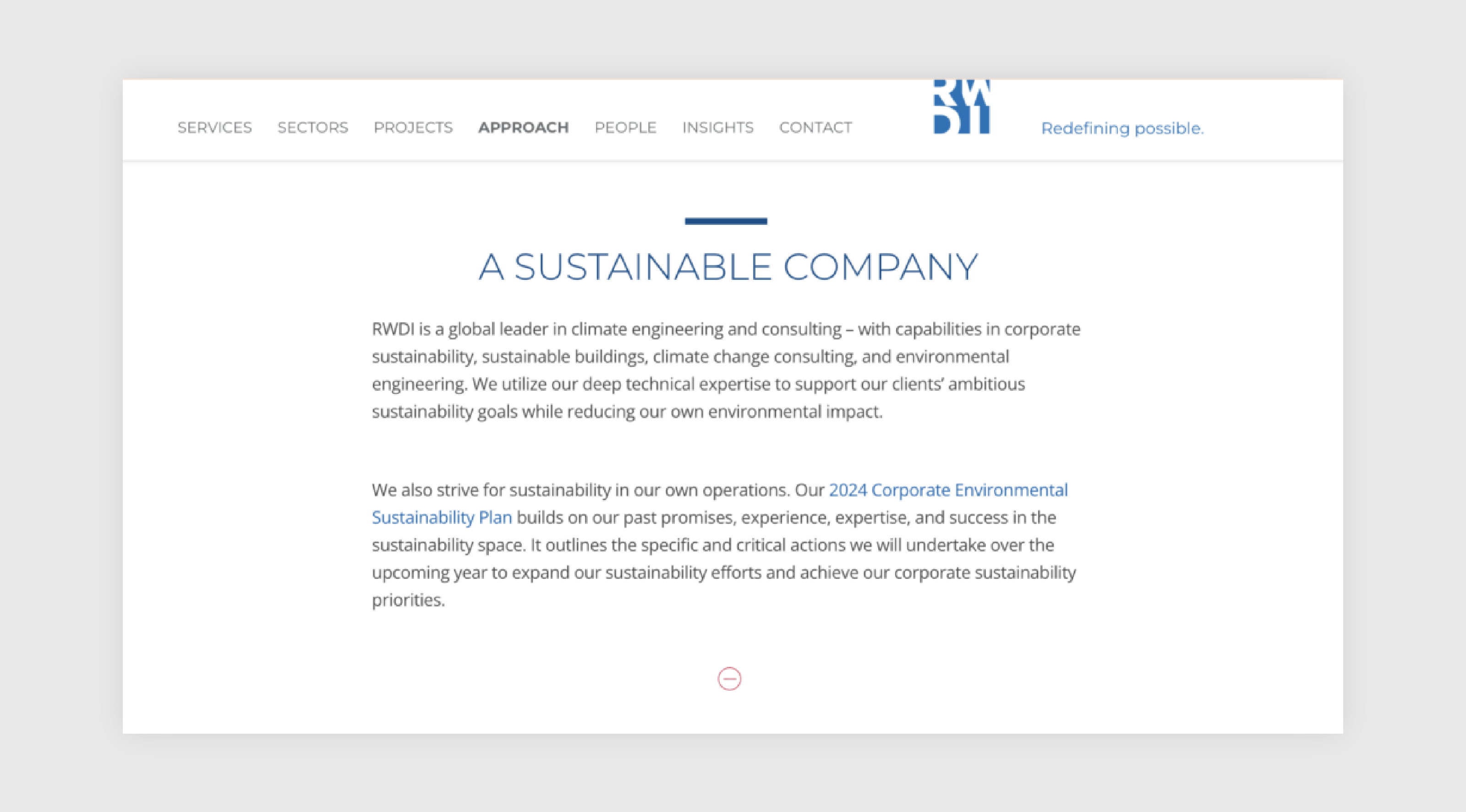
RWDI is an environmental engineering firm specializing in creating efficient buildings and engineering environmentally conscious infrastructure.
While a core aspect of their business is helping clients achieve sustainability goals, they recognize the need to reduce their own environmental impact in the process. They publicize their sustainability plans and outline their goals for everyone to see via their website and offer a downloadable report. Similarly, they partake in content marketing to discuss challenges they themselves and their clients face.
Syngenta Canada
Syngenta Canada is an agricultural tech company offering crop protection, seed care, and crop management solutions to farmers across Canada.
Being in the agriculture industry, they play a role in the long-term viability of our food systems, biodiversity preservation, and the usage of natural resources. Amongst their many CSR initiatives is their commitment to protecting pollinators like bees since nearly 70% of fibre crops rely on insect pollination. They’ve created a dedicated space on their website including downloadable content that educates their audience on the role that bees play in sustainable agriculture. An important action they’ve taken is launching a program called Operation Pollinator which has created habitats for bees for over 15 years through strategic partnerships. Through the use of infographics and video to support their existing initiatives, Syngenta partakes in authentic green marketing.
Don’t be performative. Embracing green marketing means actually being green
Tips to keep in mind when considering green marketing
What can we learn from these examples? When you’ve taken real steps toward sustainability don’t be shy about it. It’s like shouting from the rooftops about something you’re genuinely proud of. Just make sure what you’re shouting about is true—nobody likes a false alarm. Only commit to sustainability goals that make sense for your business. With that said, green marketing isn’t the responsibility of a marketing team because it requires accountability from the business as a whole to even be possible.
- Highlight proven actions by promoting the sustainability measures you’re already taking.
- Celebrate progress. Not everything needs to be groundbreaking. Show the process and celebrate the small wins.
- Share real stories: Real-life examples of your impact can create emotional resonance and trust.
- Consider expert advice in ESG for a curated strategy if you want this to become a major component of your business.
Questions to ask yourself if you want to make your business more sustainable
If you want to enter the green marketing space, first consider your supply chain, business strategy, or production processes. Determine what’s working and what needs improvement. Do all of this transparently. It builds trust and shows that your efforts are genuine. If addressing climate concerns feels inconsistent with your current brand image or processes, it might be time to revisit your corporate social responsibility (CSR) strategies or ESG initiatives. Authenticity with these initiatives is vital, so be sure to align your messaging with your actions.
Start by asking the following:
- What are our current ESG practices and how do we measure up against others in our industry?
- How does our business contribute to climate change?
- How can we integrate sustainability into our overall business strategy?
- Which areas of our operations have the most significant environmental impacts?
- Who can we partner with for sustainability initiatives?
Chances are, there are opportunities at any scale. While you may not be able to reduce carbon emissions dramatically by 70%, there’s a lot you can do to build sustainability into your organizational behaviour. Then, you have grounds to do more green marketing. Take the following ideas as inspiration:
- Think about how to reduce waste when hosting events or in-person gatherings
- Consider sustainability when choosing vendors and partners
- Consider taking more aspects of your operations or digital marketing (ie. less paper-based)
- Provide less wasteful or sustainable product packaging
- Conduct team-building or volunteer initiatives that support the environment such as clean-ups or tree-planting
- Create content about sustainability for your industry
Green is the new black
The best way to avoid greenwashing accusations is to remember that if you are going to talk the talk, you have to walk the walk. Embracing green marketing in the B2B space isn’t about hopping on a trend—it’s about showcasing your company’s commitment to creating a sustainable future by being transparent about your efforts as an organization. With consumers increasingly favouring eco-conscious brands, investors considering ESG practices, and employees seeking work at value-driven companies—integrating sustainability into your business can provide a competitive advantage. If this isn’t convincing enough, remember that green marketing is a win-win-win—helping the planet helps your business.



